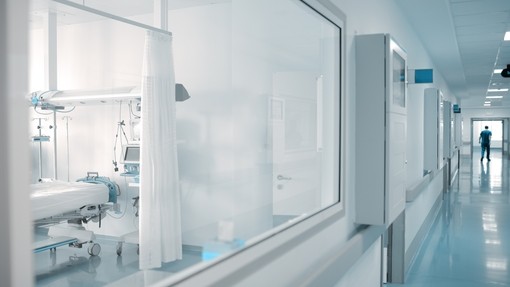COVID-19 and health and safety reporting requirements (RIDDOR)

Details
Guidance has been issued by the Health and Safety Executive (HSE) as to when it might be necessary to notify them under RIDDOR (the Reporting of Injuries, Diseases and Dangerous Occurrences Regulations 2013) when members of staff become infected by COVID-19. However, the application of the guidance, particularly for those employers operating in the health sector, has led to some uncertainty as to when and if a report under RIDDOR is required.
Under the Health and Safety at Work etc Act 1974, employers have a general duty to ensure, so far as is reasonably practicable, the health, safety and welfare of their employees at work. HSE has stated that if an employer is following the relevant Public Health England (PHE) guidance for their sector in terms of controlling, insofar as is possible, the public health risks posed by COVID-19, they will be taking reasonably practicable precautions to control workplace risks. However, the national outcry about the distribution and availability of PPE equipment for example during the current pandemic means that the taking of reasonable precautions to control risk in the workplace is inevitably more of a challenge for those operating in the health sector.
HSE’s guidance states that a RIDDOR report is only required when:
- an unintended incident at work has led to someone’s possible or actual exposure to coronavirus (this must be reported as a dangerous occurrence); or
- a worker has been diagnosed as having COVID-19 and there is reasonable evidence that it was caused by exposure at work (this must be reported as a case of disease); or
- a worker dies as a result of occupational exposure to coronavirus
The key to whether or not there is a requirement to report to HSE is seemingly a causal connection to exposure at work. However, HSE clearly recognises in its guidance that due to the prevalence of coronavirus cases in the general population, it may be very difficult for employers to establish whether or not any infection contracted by an individual member of staff was contracted as a result of their work. Therefore, HSE has advised that diagnosed cases of COVID-19 are not reportable under RIDDOR unless there is reasonable evidence suggesting that a work-related exposure was the likely cause of the disease.
If an incident happens in the workplace and results in (or could result in) the release or escape of the coronavirus, this should be reported as a dangerous occurrence. An example given by HSE is a phial known to contain the coronavirus being smashed in a laboratory, leading to workers being exposed.
However, there appears to be some uncertainty as to whether a worker being diagnosed with COVID-19 is reportable as a case of disease. A report must be made where there is reasonable evidence that a worker diagnosed with COVID-19 was likely exposed because of their work. Such instances could include, for example, frontline health and social care workers (e.g. ambulance personnel, GPs, social care providers, hospital staff etc.) who have been involved in providing care/treatment to patients or service users with COVID 19, who subsequently develop the disease. However, to be reportable, there must still be reasonable evidence that exposure in the workplace was the likely cause of the contraction of the virus. There may not be such evidence if, for example, the healthcare worker had taken all necessary precautions to prevent the spread of the disease, for example by the appropriate use of PPE. A cluster of confirmed COVID-19 cases among staff in a particular location or department may be seen as reasonable evidence of exposure in the workplace being the likely cause of the contraction of the virus by at least some of the members of staff affected, even if the setting is not one where there would be any known risk of exposure, for example office settings and other non-healthcare settings. A doctor may indicate the significance of any work-related factors when communicating their diagnosis, but this may not necessarily be determinative of the question of whether the virus was contracted as a result of workplace exposure.
The same issue arises in respect of cases where a worker dies as a result of coronavirus. Again, to be reportable as a death due to occupational exposure to a biological agent, there must be reasonable evidence suggesting that a work-related exposure to coronavirus was the likely cause of death.
Coronavirus has been listed as a notifiable disease under the Health Protection (Notification) Regulations 2010. This change in law requires GPs to report all cases of COVID-19 to Public Health England. However, the RIDDOR reporting requirements are completely separate from any such reporting under these Regulations.
If in doubt about whether a report is required, it may be useful to contact the HSE helpline for further guidance. It is important to remember that a report may not necessarily lead to any action being taken by HSE, especially during the current circumstances, where the spread of the virus is prevalent and there remains uncertainty as to whether workplace exposure is likely to be the cause of the contraction of the virus.
If you determine that a COVID-19 case is not reportable under RIDDOR, it is advised that you clearly document your decision and the rationale for it.
For further help or support in identifying cases that might be reportable under RIDDOR or for any other queries or advice relating to HSE reporting or enforcement matters, please contact Emma Stockwell, Eleanor Tunnicliffe, Philip Moy or Stephen Barnfield.
For further updates and other articles discussing the impact of the coronavirus please view our coronavirus hub.






